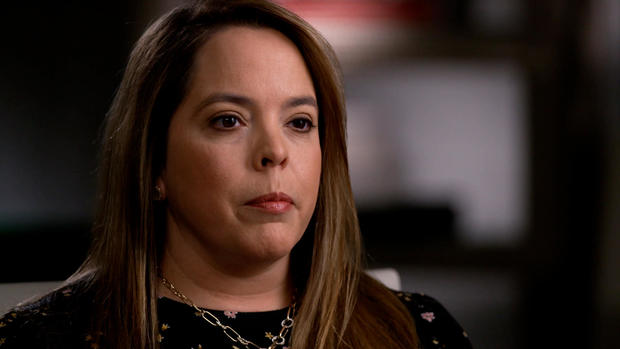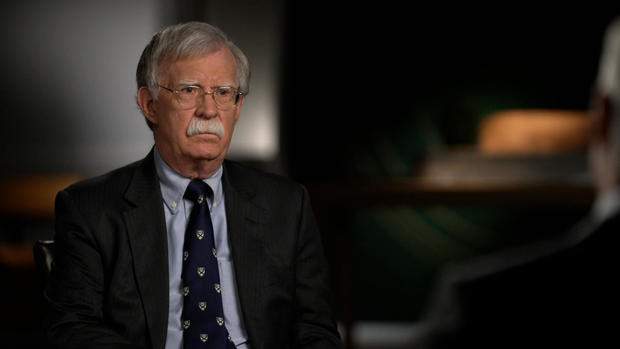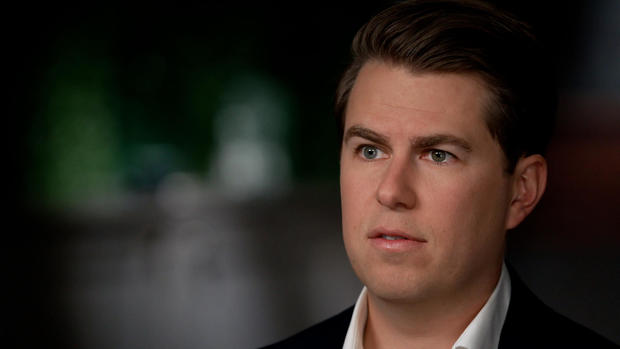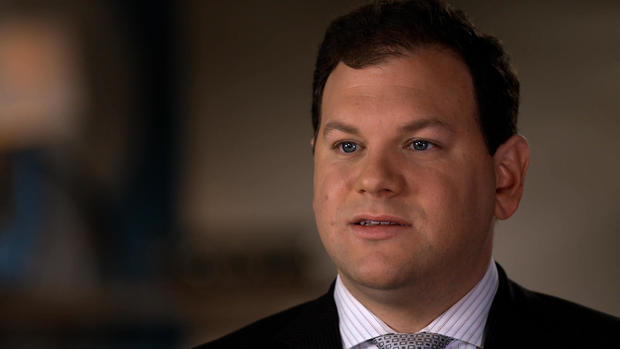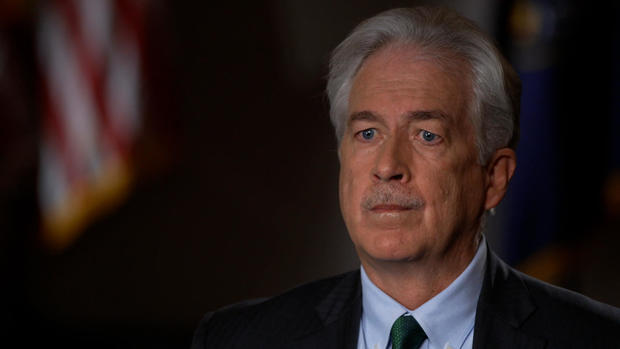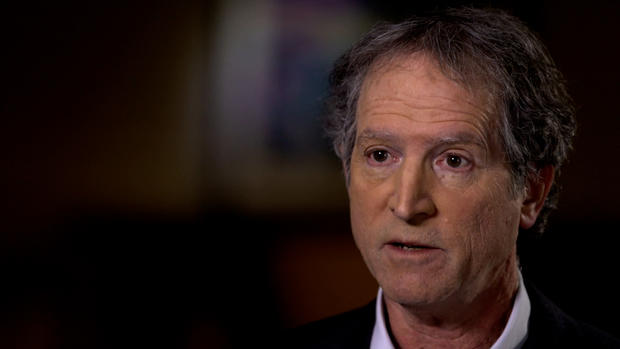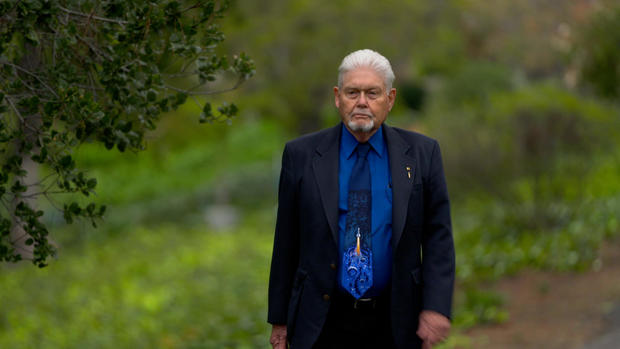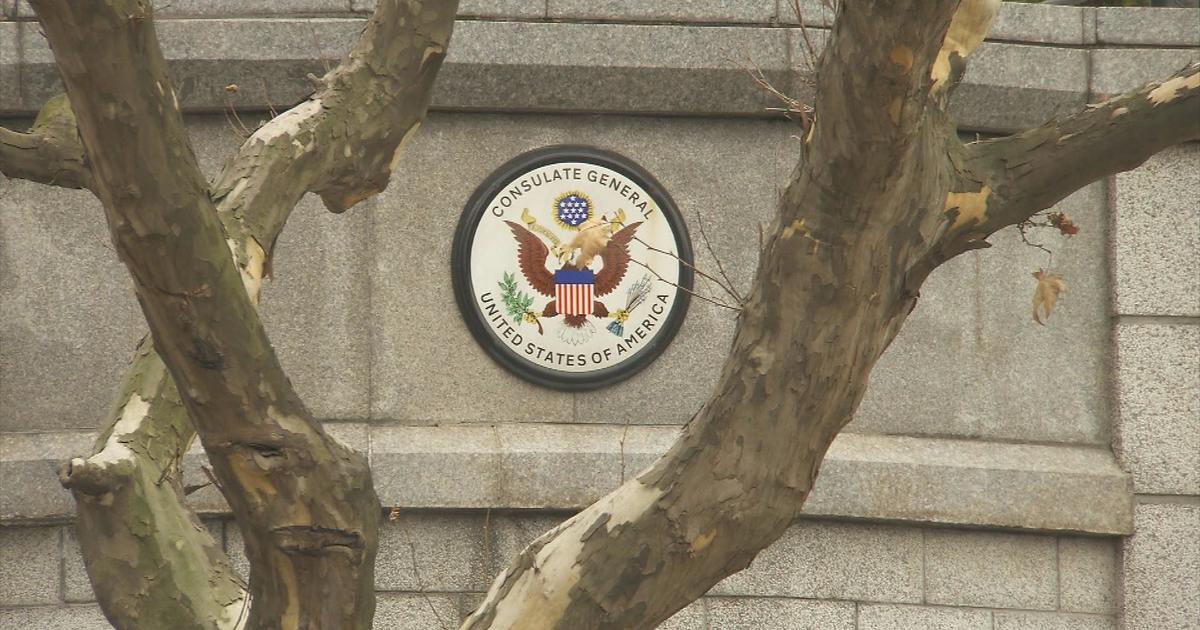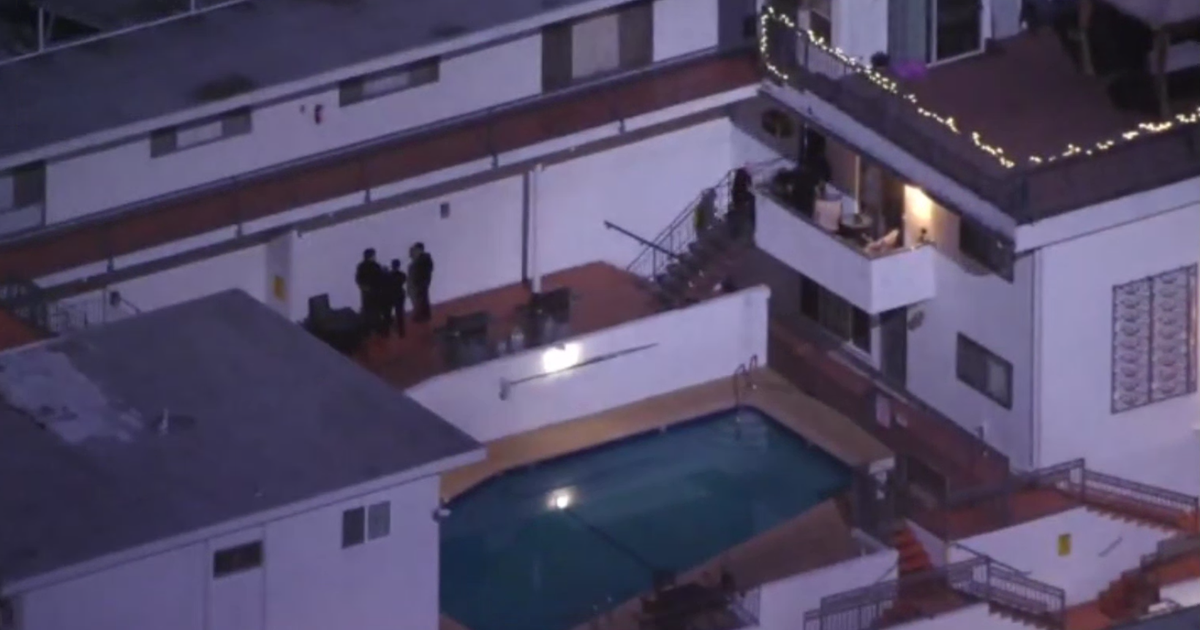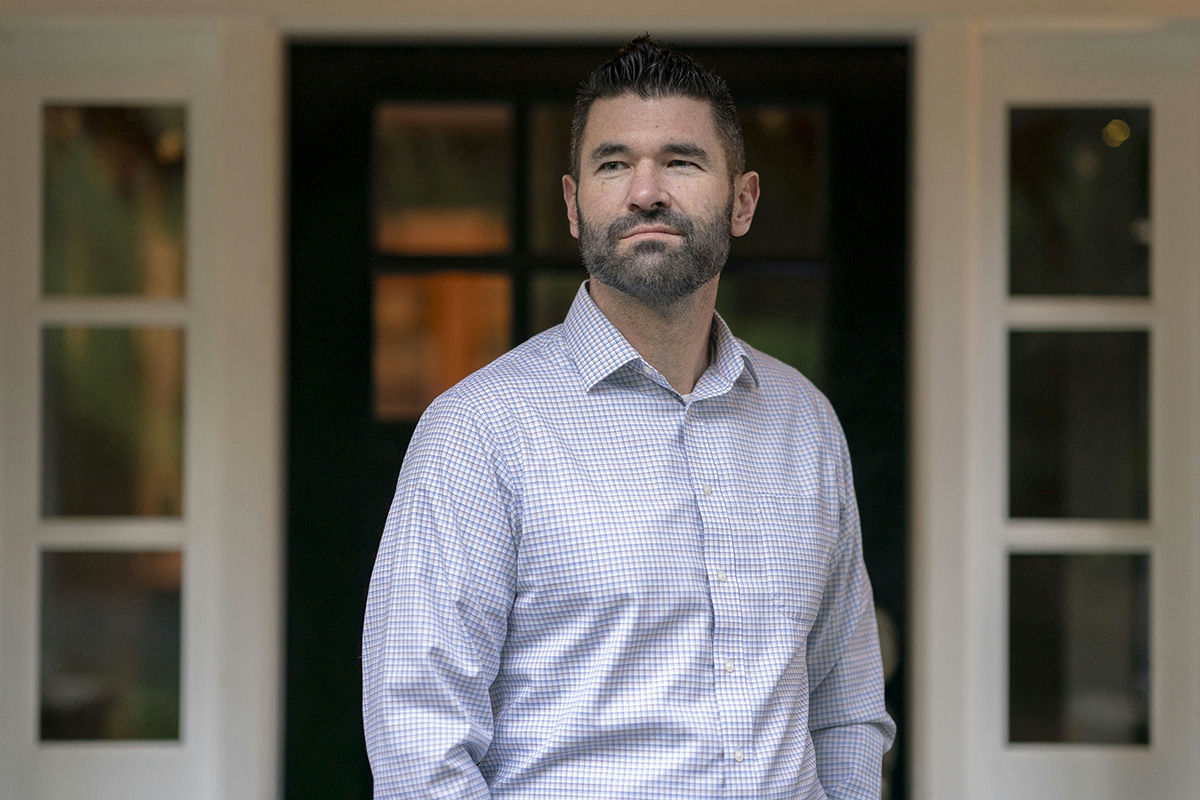Havana Syndrome: High-level national security officials stricken with unexplained illness on White House grounds
Since 2016, U.S. government officials overseas and their families have reported sudden, unexplained, brain injuries with symptoms of vertigo, confusion and memory loss. The CIA, FBI and State Department are investigating a theory that some of these officials were injured by an unseen weapon. Who might be targeting Americans and why are unknown. Incidents have been reported in Europe, Asia, and Latin America, but our reporting has found senior national security officials who say they were stricken in Washington and on the grounds of the White House. The former officials you are about to meet are revealing their experiences for the first time. They were responsible for helping to manage threats to national security.
Olivia Troye: I covered any and all emerging threats, homeland security incidents domestically, so I covered whether it was from mass shootings to hurricanes, natural disasters…
Olivia Troye was homeland security and counterterrorism adviser to Vice President Mike Pence. She had served in the Pentagon, deployed to Iraq, served in the Defense Intelligence Agency and the National Counterterrorism Center. At the White House, she worked in the 19th century Eisenhower Executive Office Building beside the West Wing. In the summer of 2019, she was descending stairs, toward the White House, when she felt she had been physically struck.
Olivia Troye: But it was like this piercing feeling on the side of my head, it was like, I remember it was on the right side of my head and I got like, vertigo. I was unsteady, I was, I felt nauseous, I was somewhat disoriented, and I was just, I remember thinking, "OK you gotta---don't fall down the stairs. You've gotta find your ground again and steady yourself."
She steadied herself on a railing but the "piercing feeling" continued as she passed by an entrance to the West Wing.
Olivia Troye: It was almost like I couldn't really process. It was like a paralyzing panic attack. I've never had that. I've never felt anything like that. And so I-- you know, I-- I thought to myself, "I mean, do I have a brain tumor out of the blue? Is this what happens? Am I having a stroke?"
Olivia Troye was inside the security perimeter—headed to her car. She went down the steps, past the West Wing and down the closed parking lot, used by presidents, called West Executive Avenue. Then she passed through the Secret Service gate and out to the staff parking in the Ellipse, south of the White House.
Scott Pelley: Did you ever experience anything like this again?
Olivia Troye: So not immediately. But I did again about a year later. It didn't happen on the steps. It happened a couple times walking to my car on the Ellipse.
Scott Pelley: Tell me about those times.
Olivia Troye: It was a similar sensation. But this time it was very much the feeling of vertigo and dizziness. And I felt like I couldn't really walk. There was sort of-- it was like I had a depth perception issue where I couldn't figure out where the ground was. And I would start walking. And I felt like I was just gonna fall right into the ground.
Troye says she didn't report the episodes because she didn't want to believe she was seriously ill and she worried what it would mean to her security clearance and career. After this interview she reported for the first time.
Olivia Troye: There is a human aspect of it of shame. And do you really want to admit you're sick? Do you want to come forward and tell someone that, especially as a member of the intelligence community? I think I'm still processing all of it and thinking about, like, how many more people are like me who felt this.
It appears there are several. A senior member of the National Security Council says he was stricken in November 2020, on the same steps by the West Wing. That former official, whose incident was first reported in the New Yorker, asked us not to name him. But he described the incident to a close colleague, John Bolton, former national security adviser.
John Bolton: They had disorientation and ringing in their ears. And just a general inability to function.
Bolton told us the official said he couldn't speak or think clearly. He was taken to an emergency room. The former official sent us a note saying that, more than a year later, "I'm still recovering and suffering from headaches and other symptoms, and have been diagnosed with two other medical conditions that are believed to be the result of the attack…" He's still an outpatient at Walter Reed National Military Medical Center.
John Bolton: That was a very debilitating attack. And similar to what others have reported.
Those "others" include Miles Taylor, also speaking for the first time. Taylor was deputy chief of staff and, later, chief of staff of the Trump administration Department of Homeland Security.
Miles Taylor: Your job is to oversee the roughly 250,000 men and women of the department that conduct a range of missions from aviation security to border security to cybersecurity.
Taylor told us he was hit with the same symptoms described by Olivia Troye.
Miles Taylor: It was late one night in April 2018. I'd just become deputy chief of staff of the department, taking on some additional sensitive issues at DHS, and woke up in my apartment that night, a row house on Capitol Hill, to a really strange sound.
The sound that woke Miles Taylor is a common experience reported by dozens of Americans stricken overseas.
Miles Taylor: It was sort of a chirping, somewhere between what you would think is a cricket or sort of a digital sound. I didn't know what it was, but it was enough to wake me up. What was really strange about it is, I went to the window, opened up my window, looked down at the street. And keep in mind, Scott, this is probably 3-- 3:30 in the morning and I see a white van. And the van's brake lights turned on, and it pulled off and it sped away.
Scott Pelley: How long did it last?
Miles Taylor: This whole episode only lasted about seven to ten minutes.
Scott Pelley: How did you feel the next day?
Miles Taylor: Off. Off, not ready to go to work, you know, kinda wanting to take the day off, you know, sick.
Then, about five weeks later, Taylor says it happened again.
Miles Taylor: Next day, feeling off balance, feeling just out of it, again, those sort of concussion-like symptoms you would have from, you know, getting knocked pretty hard in a sport. And that incident stood out to me, because I was actually just getting ready to leave to go to Israel on a congressional delegation. We were going to meet the Israeli Prime Minister, Benjamin Netanyahu, have some sensitive conversations with the Israelis on important cybersecurity issues. And I remember because I got to the airplane at Andrews Air Force Base to take off and thought, "I'm already nauseous. I don't know if I can do this flight."
Both Miles Taylor and Olivia Troye became critics of the Trump administration, but they told us that has nothing to do with what they see as a potential threat to national security. Taylor says he became alarmed by that threat in 2018 after he heard of another case like his in the Washington area.
Miles Taylor: I became aware of a U.S. government official more senior than me who'd experienced similar episodes at their place of residence.
Scott Pelley: You say more senior than you. Are you talking about a cabinet level secretary?
Miles Taylor: This was an individual that, yes, was roughly at the cabinet level in the Trump administration who had similar episodes occur. That to me, as a homeland security professional, was a big blinking red light. I mean, to me this said, "five-alarm fire." We may have ongoing activity targeting U.S. government officials here in our country.
Scott Pelley: Who was it?
Miles Taylor: I can't say the individual outta respect for, you know, their privacy. I'll leave it at that. But someone senior enough to say, this is more than just a fluke.
More than a fluke, a pattern across two administrations. Recent injuries among U.S. officials were reported in Vienna, Austria—ahead of a trip by the vice president to Vietnam and in India during a visit by the director of the CIA. In 2019, during a visit by President Trump to London, two members of John Bolton's national security staff became ill in a hotel.
John Bolton: And that it was on the floor where we'd completely taken up with personnel from the White House and White House agencies struck me as being pretty good evidence of a deliberate attack.
Scott Pelley: You believe it was an attack?
John Bolton: I don't think there's any other hypothesis when you begin to look at the number and the pattern that we've experienced.
Bolton says, months later, one of those staff members hurt in London said she was overcome, again, walking her dog in the Washington area. We have found, she is not the only one who says they were attacked abroad and, later, at home.
Scott Pelley: You must have thought that when you were home in America that you were safe?
Robyn Garfield: I'll tell you, when I landed from China, I literally was kissing the ground.
We met Robyn Garfield in 2019. He's a Commerce Department official who told us that he, his wife and two children were repeatedly hit in China.
Scott Pelley: Your daughter was literally falling down?
Robyn Garfield: Yes, she fell down multiple times a day.
They were evacuated and enrolled in a State Department treatment program at the University of Pennsylvania. Recently, Garfield told us his family was hit again during their year of treatment in Philadelphia.
Robyn Garfield: My wife catapulted out of bed and sprinted down the hallway to check the children without any word. And she came back, and she told me that an extremely loud, painful, sound had woken her up.
So, they moved to a hotel where Garfield says it happened again.
Robyn Garfield: And we woke up around I believe 2:00 a.m. with strange vibrations in our bodies, and a sound.
Which led Garfield to check on his children, in another room.
Robyn Garfield: I saw an extremely eerie scene where both were thrashing in their beds-- asleep. But both kicking and moving pretty aggressively. And I went over to my daughter, and I put my head down next to her head. And I heard a very distinct sound, just right there sort of like water rushing. So, I picked her up, took her and put her with my wife, and I came back and I checked my son. Same sound just right next to his head. So, I picked him up, put him on my shoulder, walked over to my wife and I said, "We're getting out of here."
Garfield reported this to the FBI. Today, his family is posted abroad where they continue to work to improve balance, eyesight and memory.
Robyn Garfield: This is the most difficult aspect of this whole issue for me are the children who've been impacted, both mine as well as many others. I personally know the parents of, I believe, eight other children. I can tell you I've personally seen balance issues in children that have never had that. Trouble with finding their words, stuttering. And then continuing challenges around vision. One of the things that we have heard from some parents is that these are manifesting in the classroom in real, tangible ways.
Persistent neurological symptoms are not the only fight these Americans have faced. Some of their early reports were dismissed as psychosomatic, or illnesses connected to an infection or exposure to pesticides. Some were told that they were suffering the effect of old sports injuries. One theory had it that the sound these victims heard during the incidents was actually a particular species of cicada.
UNIDENTIFIED PERSON: It was rough. It was rough in the beginning. It was a dark place to be. We were kinda shoved aside and they wanted it to go away.
This man is among those who fought for recognition. He's one of the first cases, from 2016. Americans assigned to the U.S. Embassy in Cuba say they and their families were struck at home, frequently, in the night. He remembers the first time.
UNIDENTIFIED PERSON: And that night all the dogs started kicking off, in the neighborhood barking, which was very unusual for them all to go in chorus. And then this just loud sound just absolutely filled my room. It felt like my head was slowly starting to get crushed.
We agreed not to use his name. He is not allowed to say what federal agency he worked for.
UNIDENTIFIED PERSON: And then the severe ear pain started. So, I liken it to if you put a Q-tip too far and you bounce it off your eardrum. Well, imagine taking a sharp pencil and just kinda poking that. It was very jarring and painful. And eventually, I started blacking out.
With the first public reports coming from Cuba the affliction became known as "Havana Syndrome." More than two dozen embassy officials reported injury, but an early FBI report speculated it was all mass hysteria. His brain injuries left him disabled, essentially retired, at the age of 36. A weighted vest helps him balance. His service dog helps with walking and his loss of vision.
Scott Pelley: Legally blind in one eye?
UNIDENTIFIED PERSON: Correct. Yeah.
Scott Pelley: What have the doctors told you?
UNIDENTIFIED PERSON: It's not the eye, it's the wiring.
Scott Pelley: What do you mean?
UNIDENTIFIED PERSON: The eye function as itself is completely correct and appropriate. It's the signal that comes out the back of the eye into the brain, is where the problems are. And no one really knows how to fix that.
He is speaking tonight, for the first time, to put an end to doubt.
Scott Pelley: You have not wanted to do this interview.
UNIDENTIFIED PERSON: No. This is probably one of my worst nightmares.
Scott Pelley: Why is that?
UNIDENTIFIED PERSON: I didn't do my job because I want to be known. I did my job because I love my country. And I was good at it. God, and I miss my job. I'm here because I'm tired of the gaslighting that keeps happening from the US government. I'm tired of this yo-yoing. Because I'm watching new colleagues and friends that I've trained with, and friends that I've known for years that are being sent to these countries and coming back a shell of their former selves. We need to help them, and we need to stop this.
Brain injuries suffered by U.S. officials in Washington and abroad are the focus of an intense investigation. After starting with around one thousand possible cases, a CIA task force has zeroed in on about two dozen that cannot be explained. The task force, which includes the FBI, is led by a CIA officer who helped find Osama bin Laden. The new director of the CIA, William Burns, told us one thing is already clear: after early disbelief, these injured Americans can no longer be doubted.
William Burns: In my first week as director, I began what had become dozens and dozens of meetings with affected officers and family members. And I found their stories to be powerful and compelling and sometimes heartbreaking.
Bill Burns had heard those stories from CIA officers who reported injury since 2016, but this past fall, while on an official visit to India, a member of his staff was stricken in their hotel. Later, Burns personally escorted that staff member to medical evaluations.
Scott Pelley: It seems that the Delhi incident might have been intended to send you a message.
William Burns: I don't know. And as I said, I can't comment on individual cases here as well. All I can tell you is that each story I've heard, each officer I've met with who's been affected by this, just redoubles my commitment and my determination on this issue.
Bill Burns served six presidents at the State Department, rising to the highest rank in the foreign service. He took over the CIA for President Biden, last spring.
William Burns: Early on, I tripled the number of full-time medical personnel working on this issue. We streamlined access to Walter Reed, established new partnerships with other world-class medical providers, increased the number of case managers. And we're also making progress on the investigative side as well.
Progress on the investigative side came, this month, with a report on the nature of the brain injury.
Dr. David Relman helped lead two government panels that investigated the injuries. He's a professor of medicine at Stanford University.
Dr. David Relman: What we found was, we thought clear evidence of an injury to the auditory and vestibular system of the brain. Everything, starting with the inner ear where humans perceive sound and sense balance and then translate those perceptions into brain electrical signals.
Dr. Relman's committees focused on one subset of patients whose experiences seemed inexplicable.
Dr. David Relman: This subset of cases had a very unusual, so-called acute sensory event, an experience that consisted of the abrupt onset of intense pressure or vibration in the face or head sometimes with the abrupt onset of sound.
Sound, like that described by the officials who spoke to us.
UNIDENTIFIED PERSON: And then this just loud sound just absolutely filled my room.
This former official, who we agreed not to name, recorded the sound at his home in Havana. Understand that the sound does not cause the injury, it is a byproduct. Like the sound of a gun which is not what does the harm.
The injured officials we spoke with said the sound or a feeling of pressure came from one direction and focused in one location.
Miles Taylor: It was a continuous sound and one that only changed based on my location.
Dr. David Relman: They left, it dissipated. They returned, it recurred. That to us was something that we had never heard of, we could not explain by known medical or environmental conditions, and to us deserved our special attention in an effort to understand what might be the plausible mechanism.
That mechanism, Dr. Relman's committees concluded, was most likely "pulsed electromagnetic energy." In other words, a focused beam of microwaves fired from a distance.
James Benford: I think the best explanation, the most plausible, is that it's a high-power microwave weapon.
James Benford is a physicist and leading authority on microwaves. He was not part of the government studies, but he co-wrote the book on microwave transmission. These are portable microwave transmitters of the kind that could damage the tissues of the brain.
James Benford: There are many kinds, and they can go anywhere in size from a suitcase all the way up to a large tractor trailer unit. And the bigger the device, the longer the range.
Scott Pelley: This would be able to transmit its microwave energy through the wall of a van, the wall of a home, something like that?
James Benford: Vans have windows, microwaves go through glass. They go through brick. They go through practically everything.
The technology, Benford told us, has been studied more than 50 years.
James Benford: It's been developed widely in, perhaps, a dozen countries. The primary countries are the United States, Russia and China.
Dr. David Relman: The implications of a mechanism like that suggest something different about the world now involving the loss of norms. Humans were affected in a serious fashion and for that very reason alone we have to understand this better.
The investigation is also trying to understand who could be behind this and their motive. Microwaves can be a tool for spies. Some devices are capable of collecting data, remotely, from phones and computers whatever is causing the brain injuries, a CIA interim report, last month, said there is no evidence of a massive, global, campaign to attack americans.
Scott Pelley: The interim CIA report last month said, "We assess it unlikely that a foreign actor, including Russia, is conducting a sustained, worldwide campaign harming U.S. personnel with a weapon or a mechanism." Do you mean to say that no one was harmed by a hostile actor?
William Burns: Not at all. The intelligence community assesses now that there's not a single cause that-- it would explain the more than 1,000 incidents that have been reported since Havana in 2016. We've also not yet been able to link a foreign state actor or an external device or mechanism to any of those cases.
Scott Pelley: This is the world's preeminent intelligence agency. Why is this so hard to figure out?
William Burns: It's a very complicated issue you know, dealing with a whole range of incidents which have, you know, different kinds of explanations for them as well. It's a very charged issue emotionally as well. I understand that very clearly. And that's what, you know, makes me even more determined not only to ensure people get the care that they deserve, but also that we get to the bottom of this.
Former national security adviser John Bolton fears there is a threat to the highest levels of government—given the two national security officials who say they were overcome on West Executive Avenue by the West Wing inside the White House gates.
John Bolton: If we were at war and an adversary could disable the president and his top advisors, or commanders in the field. It could render us extraordinarily vulnerable. We don't know that that's the threat we're facing. But I would much rather focus on finding out the answer now, rather than finding out later when it may be too late.
Former Homeland Security chief of staff Miles Taylor says he believes he was targeted in two mysterious incidents at his Washington home.
Miles Taylor: Someone is trying to send us a message that they can strike blows against us and we can't strike back. That line being crossed into the United States takes this in some ways just shy of the realm of warfare.
Scott Pelley: Is the national security structure in danger of being incapacitated during a time of crisis?
William Burns: No, I don't think that's the case.
Scott Pelley: But if people are being overcome on West Executive Avenue, is that an indication that the White House and its grounds are no longer safe?
William Burns: No. I don't believe that's the case. What it is an indication of is that we need to take each of these reported incidents very seriously. And as a government-- and this is a government-wide effort-- to pour the very best resources we have into this.
Scott Pelley: What line is crossed if a hostile actor is doing this in Washington, D.C.?
William Burns: Oh, that-- that would be a pretty profound line to be crossed if in fact that were the case; if we were ever able to develop concrete evidence that that were the case. But we do not have evidence of that at this point.
Scott Pelley: You understand how frustrating your comments must be to some of these people who believe they know exactly what happened to them, on what day and at what time, and what happened to their children. And yet, the director of the CIA is saying we can't connect the dots. We don't know enough yet.
William Burns: we're not at a position yet where we can offer hard evidence that would connect all those dots. But as I said, we're not done yet. We still have a lotta work to do. And what I've said directly to a number of those officers is my promise, is that I am absolutely committed to exhausting every alternative so that we can provide the kind of answers that we owe them.
This past summer in Geneva, President Biden raised the issue with Russian President Putin. The Russians deny they're involved. The Secret Service declined to comment on White House security. The iron gates of West Executive Avenue, by the West Wing, went up in 1951 after the attempted assassination of Harry Truman. Seventy years later, there is evidence the gates may have been breached by an invisible threat.
Produced by Michael Rey and Oriana Zill de Granados. Associate producers, Tadd J. Lascari and Emily Gordon. Broadcast associate, Michelle Karim. Edited by Daniel J. Glucksman and April Wilson.

